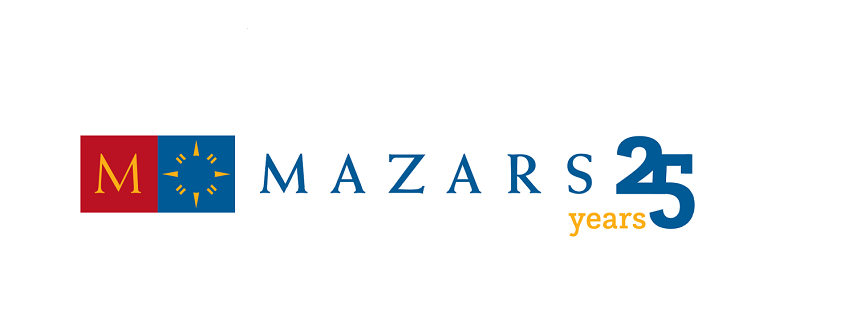Call for Leaders | What is your readiness score to benefit from the EU SURE initiative?
Fri | 03.07.2020
Accounting/audit/tax
Call for Leaders | What is your readiness score to benefit from the EU SURE initiative?
The SURE initiative - Support to mitigate Unemployment Risks in an Emergency is a powerful financial tool that allows State Members to access loans at beneficial rates, through short-time work (STW) schemes or similar measures. This initiative was presented by the European Commission on April 2nd in the context of the COVID-19 pandemic and it was approved as well by the Romanian Government.
Short-time work schemes, known as „kurzarbeit”, under the German model program provides an economic aid for temporary reductions in the number of hours worked in companies affected by temporary collapse. This allows employers who experience temporary drops in demand or production to reduce their employees’ hours instead of laying them off. Companies receive from the Government an aid proportional to the reduction in hours. Thus, deteriorating work skills are mitigated, firing and future hiring costs are reduced, networks are kept alive, and the business continues.
The SURE tool is part of a daring emergency initiative created by the European Commission and its size and concept of breaking new grounds show that the economic and social crises are the same and that new ideas are needed within the EU.
Mazars has created a survey that aims to capture the feedback of the Romanian business environment around the EU SURE initiative. Join them in finding out what our country’s business scenery looks like, under the COVID-19 impact, by completing the survey.
A report of the survey will be shared with all participants.
Mazars Study: Most of the global investors continue to seek deals despite COVID-19, but 90% of them predict falling revenues
Mazars Global Financial Advisory Services team has surveyed leaders of Private Equity funds and investors from Europe, the Americas, and Asia to understand their challenges and concerns, gauge their level of optimism for the future and find out more about their crisis response strategy.
Historic surge, but falling revenue forecasts for the next 12 months
The study COVID-19 and the world of private equity by Mazars, reveals that the funds’ leaders expect a drop in revenues for their portfolio companies in the next 12 months, as an immediate impact of COVID-19.
When talking about the impact on funds’ exit strategy, 79% of the respondents said that the exit timing for their portfolio of companies will be delayed. This doesn’t come as a surprise at all, considering that ~90% of the funds expect a drop in revenues.
Global transition economy, but investors are still open for business
88% of the investors and Private Equity firms surveyed say it is possible to complete deals in a “working from home” environment, but 74% of them admit it is more challenging to do so. There is little correlation between the fund type or size and the expected impact on the ability to complete deals from home, suggesting that funds across the market have adapted well to the new working environment.
Emerging Romania and its favorable geopolitical position
From 2000 to 2019, year by year, Romania registered an average economic growth of 4.1%, reaching the highest increase within the European Union. The favorable position within Central and Eastern Europe, low tax levels, low-interest rates, and competitive wages have prompted potential buyers and investors to consider Romania an attractive market.
Read more info HERE and download the study HERE.
Changing the rules of the tech game through cybersecurity, transformative technologies, and the digitalisation of the business environment
The launch of the study „Are you missing the Tech Train? Global investment and implementation surrounding transformative technologies” by Mazars came as an opportunity to reveal the current level of implementation of today’s most significant five technologies: Artificial Intelligence (AI), Blockchain, Enterprise Resource Planning (ERP), Internet of Things (IoT) and Robotic Process Automation (RPA).
The IT security systems become a priority during the COVID-19 pandemic
It is worth mentioning that the companies’ need for security increases as cyber-attacks become more frequent. Their ever-growing impact – from damages to the hardware infrastructure, data, and information theft, to reputational damage resulting in loss of consumer and investor confidence – emphasize the importance of providing IT security for companies.
A clear vision for the post-crisis future
The companies which were lagging on the digitization trail are now compelled to follow suit in a much more difficult economy. Even if the conditions are difficult, it is not too late for these companies, because the new technologies reshape entire industries, change hierarchies, and give rise to a new reality. Algorithms replace people, collect real-time information, and optimize offers, prices, services, and forecasts. Robots are increasingly interacting with people, and sensor networks pick up and send information to streamline internal resources and taking consumption experience to a new level externally.
2025
2024
-
November (1)
-
October (1)
-
July (1)
-
May (1)
-
March (1)
-
February (1)
-
January (1)
2023
-
November (1)
-
September (2)
-
August (2)
-
June (1)
-
May (1)
-
April (2)
-
March (1)
-
February (2)
-
January (2)
2022
-
December (3)
-
November (4)
-
October (3)
-
September (4)
-
August (3)
-
July (6)
-
June (4)
-
May (4)
-
April (8)
- Marketing News by diARK - April 2022
- Finance News by Mazars Romania - April 2022
- Experience the Perfect Chauffeur Transfer with David Intercar
- Mobility News by Business Lease - April 2022
- NRCC MEMBER IN SPOTLIGHT, WOLTERS KLUWER
- Crowe Romania and DeclaratiaUnica.ro engage in the automation of the single return form and the offering of personalized consultancy
- Cryptocurrency News by Bitcoin Romania, April 2022
- Legal News by BBW LAW - April 2022
-
March (6)
-
February (4)
-
January (5)
2021
-
December (3)
-
November (4)
-
October (2)
-
September (2)
-
August (1)
-
July (5)
-
June (3)
-
May (5)
-
April (4)
-
March (7)
- Cryptocurrency News by Bitcoin Romania, April 2021
- HR News by CNA International Executive Search Romania, March
- Real Estate News by CTP Invest, March 2021
- Sale-Purchase of Agricultural Land Located Outside Build-Up Areas
- MEET THE NRCC BOARD CANDIDATES 2021
- Fleet Management – Complete Makeover or Small Adjustments?
- Cryptocurrency News by Bitcoin Romania, March 2021
-
February (5)
-
January (6)
2020
-
December (2)
-
October (2)
-
September (3)
-
August (2)
-
July (6)
- NRCC Member in Spotlight Interview - Autonom
- Insolvency Proceedings: New Rules
- Member in Spotlight, UniCredit Bank
- Financing opportunities overview for large enterprises, SMEs and other organizations
- Companies: Simplification of Formalities
- Call for Leaders | What is your readiness score to benefit from the EU SURE initiative?
-
June (5)
-
May (8)
- The State of Alert. New rules for the collective proceedings
- The Retail Industry
- EU grants up to 6 Mil Euro for SME-s investment projects
- Member in spotlight, Heisterkamp Transportation Solutions
- State of Alert...What Is New
- The forced transformation of the automotive industry – Mazars analysis
- State of Alert in Romania
- Reducing the Impact of the Pandemic
-
April (6)
-
March (2)
2019
-
November (2)
-
July (1)
-
June (1)
-
March (2)
-
January (1)
2018
-
October (2)
-
September (1)
-
August (1)
-
July (3)
-
June (2)
-
May (1)
-
April (1)
-
March (3)
-
February (13)
- NRCC Elections 2018 - Elena Badea
- NRCC Elections 2018 - Loreda Dragomir
- NRCC Elections 2018 - Simina Fodor
- NRCC Elections 2018 - Manuel Herraiz Orti
- NRCC Elections 2018 - Tom Leene
- NRCC Elections 2018 - Mircea Moga
- NRCC Elections 2018 - Ronald Oort
- NRCC Elections 2018 - Razvan Pascu
- NRCC Elections 2018 - Alexandru Popescu
- NRCC Elections 2018 - Mihaela Tudor
- NRCC Elections 2018 - Loredana Van de Waart
- NRCC Elections 2018 - Edwin Warmerdam
- NRCC Elections 2018 - Philip Aarsman
2017
-
November (1)
-
September (1)
-
August (2)
-
May (1)
-
April (2)
-
March (1)
2016
-
November (1)
-
September (8)
-
June (1)
-
February (2)








